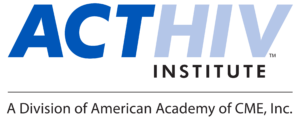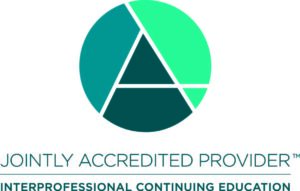Case Studies in Addressing Mental Health and Improving Outcomes for People with HIV
|
Release Date: November 24, 2025 |
 |
Support for this activity has been made possible through educational grants from Gilead Sciences and Merck. |
Webinar Highlights:
Untreated mental health disorders can significantly compromise HIV treatment outcomes—but addressing them in everyday practice isn’t always easy. People with HIV (PWH) experience higher rates of depression and anxiety, underscoring the importance of integrating mental health screening and management into routine HIV care.
Join this engaging, case-based webinar designed to strengthen your ability to recognize and manage depression in PWH. You’ll gain practical strategies to:
- Incorporate efficient screening tools and workflows within your care team;
- Select, initiate and monitor common psychotropic medications for safety and efficacy;
- Guide timely referrals and coordinate care with mental health specialists.
Whether you’re a physician, advanced practice provider, nurse, or pharmacist, you’ll leave with actionable approaches to immediately enhance your team’s HIV prevention efforts.
Learning Objectives:
- Explain the impact of major depressive disorder on HIV care and apply essential approaches for assessing different depressive types and alleviating symptoms;
- Describe the nature of difficult-to-treat depression and evaluate alternative and adjunctive treatment strategies;
- Identify key team members for supporting patients with major depressive disorder in your practice, and implement strategies to strengthen and expand the team to meet patient needs.
What You Can Expect:
- Practical Application of the Science: Our expert faculty educators will guide you through this engaging and informative program, and offer suggestions on how you can apply best practices to patient care.
- Patient-Centered Care: Learn from faculty who are directly involved in patient care about strategies for providing compassionate care that addresses individuals’ unique needs and challenges.
- Team Focused: Explore how HIV clinicians from multiple professions are collaborating to optimize patient care.
By participating, you’ll not only enhance your professional development but also be better prepared to contribute as an HIV team member toward better healthcare outcomes for your patients.
Activity Faculty:
 |
 |
|
Andrew Angelino, MD Professor of Clinical Psychiatry,Chair of Psychiatry Johns Hopkins Howard County Medical Center Columbia, Maryland |
Ashley Maister, BS, PharmD, BCPP Clinical Pharmacy Practitioner, Psychiatry |
| Andrew Angelino, MD, graduated from Loyola University School of Medicine in Chicago. He completed psychiatry residency at The Johns Hopkins Hospital and joined the faculty of the Department of Psychiatry and Behavioral Sciences in the Johns Hopkins University School of Medicine in 1999. He is currently a Professor of Clinical Psychiatry and the Chair of Psychiatry at Johns Hopkins Howard County Medical Center. He has been an attending psychiatrist in the Johns Hopkins HIV (Bartlett) Clinic since 1999, seeing a great many patients, and publishing papers and textbook chapters on the treatment of psychiatric illnesses in patients with HIV infection. He has lectured on HIV Psychiatry all over the United States, and the world, including Denmark, Ireland, Argentina, Canada, and Russia. With his long-time friend, colleague and mentor, Dr. Glenn Treisman, he co-authored the book The Psychiatry of AIDS: A Guide to Diagnosis and Treatment. |
Ashley Maister, PharmD, BCPP is a clinical pharmacy practitioner in the outpatient behavioral health clinic at the Corporal Michael J. Crescenz VA Medical Center in Philadelphia, PA. She received her Doctor of Pharmacy degree Thomas Jefferson University in 2018. She then completed her PGY-1 pharmacy residency at Penn Presbyterian Medical Center in Philadelphia, PA and PGY-2 psychiatric pharmacy residency at Ernest Mario School of Pharmacy at Rutgers University in Piscataway, NJ. Dr. Maister is a Board Certified in Psychiatric Pharmacy, and her clinical interests include serious mental illnesses and substance use disorders. She serves as a preceptor for both pharmacy students and residents, and was awarded her facility’s Preceptor of the Year award in 2022. She also contributes to the profession through research and involvement in local and national pharmacy organizations. |
Target Audience:
Accreditation and Credit Designation

In support of improving patient care, American Academy of CME, Inc. is Jointly accredited by the Accreditation Council for Continuing Medical Education (ACCME), the Accreditation Council for Pharmacy Education (ACPE), and the American Nurses Credentialing Center (ANCC), to provide continuing education for the healthcare team.
Physicians:
American Academy of CME, Inc., designates this enduring material for a maximum of 1.0 AMA PRA Category 1 CreditsTM. Physicians should claim only the credit commensurate with the extent of their participation in the activity.
NPs and Nurses:
American Academy of CME, Inc., designates this educational activity for 1.0 ANCC contact hours (0.6 pharmacotherapeutic contact hours).
California
Provider approved by the California Board of Registered Nursing, Provider Number CEP16993 for 1.0 contact hours.
Physician Assistants:
American Academy of CME, Inc. has been authorized by the American Academy of PAs (AAPA) to award AAPA Category 1 CME credit for activities planned in accordance with AAPA CME Criteria. This activity is designated for 1.0 AAPA Category 1 CME credits. Approval is valid until November 24, 2026. PAs should only claim credit commensurate with the extent of their participation.
Pharmacists:
This activity provides 1.0 ACPE contact hours (0.1 CEUs) of continuing education credit. Universal Activity Number: JA4008191-0000-25-060-H02-P, Knowledge.
All other members of the care team will receive a certificate of participation.
Disclosures
According to the disclosure policy of the Academy, all faculty, planning committee members, editors, managers and other individuals who are in a position to control content are required to disclose any relationships with any ineligible company(ies). The existence of these relationships is not viewed as implying bias or decreasing the value of the activity. Clinical content has been reviewed for fair balance and scientific objectivity, and all of the relevant financial relationships listed for these individuals have been mitigated.
Faculty Educator/Planner Disclosures
Andrew Angelino, MD: No relevant financial relationships to disclose.
Ashley Maister, BS, PharmD, BCPP: No relevant financial relationships to disclose.
Planning Team Disclosures:
Jonathan Colasanti, MD; Courtney Fletcher, PharmD; Jose Gutierrez, PhD, FNP-BC; Margaret Hoffman-Terry, MD, FACP, AAHIVS; John JD Juchniewicz, MCIS, CHCP, FACEHP; H. Nina Kim, MD, MS; Natalie Kirkwood, RN, BSN, JD; Daiquiri Y. Robinson, MEd, Matthew Young: No relevant financial relationships to disclose.
Christopher Evans, MD: Grant/Research Support: ViiV Healthcare
William R. Short, MD, MPH: Advisory Board/Consultant – ViiV Healthcare, Gilead Sciences
This activity includes information about off-label uses of approved agents and/or investigational agents.
The opinions expressed in this accredited continuing education activity are those of the faculty, and do not represent those of the Academy/ACTHIV® Institute. This educational activity is intended as a supplement to existing knowledge, published information, and practice guidelines. Learners should appraise the information presented critically, and draw conclusions only after careful consideration of all available scientific information.
Implicit Bias
Implicit bias refers to unconscious attitudes and stereotypes that influence our thoughts, judgements, decisions, and actions without our awareness. Everyone is susceptible to implicit bias, even clinicians. In healthcare, implicit biases can have a significant impact on the quality of care an individual receives. These biases can be both favorable and unfavorable, and are activated involuntarily without an individual’s awareness or intentional control.
Studies have indicated that healthcare providers’ incorrect perceptions can impact providers’ communications and clinical decision-making contributing to disparities in clinical outcomes. Addressing implicit biases in healthcare is critical to improving health outcomes and promoting health equity for all patients. Patient-centered care can reduce the impact of implicit bias, by treating each patient as a unique individual who may or may not hold beliefs associated with their backgrounds and circumstances. In addition, recognizing implicit bias in one’s own practice using techniques such as self-reflection and mindful clinical decision-making can ensure more equitable and effective care to all patients.
Over the past several decades, cognitive science research has demonstrated human behavior, beliefs and attitudes are shaped by automatic and unconscious cognitive processes. The healthcare profession is devoting greater attention to how these automatic and unconscious processes impact care including: (1) preferential treatment toward or against specific patient populations causing healthcare inequities, (2) influence patient-provider communications leading to misunderstandings and mistrust, and (3) impact access to healthcare and affect treatment decisions resulting in misdiagnosis, delays in treatment and specialty referrals and poor pain management.
Considering one might have unconscious biases and exploring them may be uncomfortable because the very idea that they exist may conflict with how clinicians perceive themselves. It is only by becoming aware of one’s unconscious biases that members of the healthcare team can take steps to mitigate them to ensure all their patients are treated receive quality healthcare. For more information on strategies to reduce implicit bias, visit: https://www.ihi.org/library/blog/how-reduce-implicit-bias
Instructions on How to Receive Credit
There are no fees to participate in the activity. Participants must review the activity information including the learning objectives and disclosure statements, as well as the content of the activity. To receive CME/CE credit for your participation, please complete the post-assessment and program evaluation. Your certificate will be available for printing immediately.
Privacy and Contact
For more information about the American Academy of CME privacy policy, please access http://www.academycme.org/privacy.htm For any questions, please contact: [email protected].
Hardware/Software Requirements
This program should be viewed at a resolution of 1024 x 768 or higher using current versions of Microsoft Internet Explorer, Firefox, Chrome or Safari. A high-speed Internet connection is recommended.
Copyright
© 2025. This accredited continuing education activity is held as copyrighted © by American Academy of CME. Through this notice, permission is granted for its use for educational purposes only. These materials may not be used, in whole or in part, for any commercial purposes without prior permission in writing from the copyright owner(s).
